Evaluating the Financial Reality of Bird Ownership
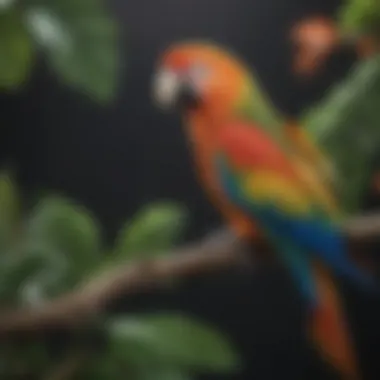
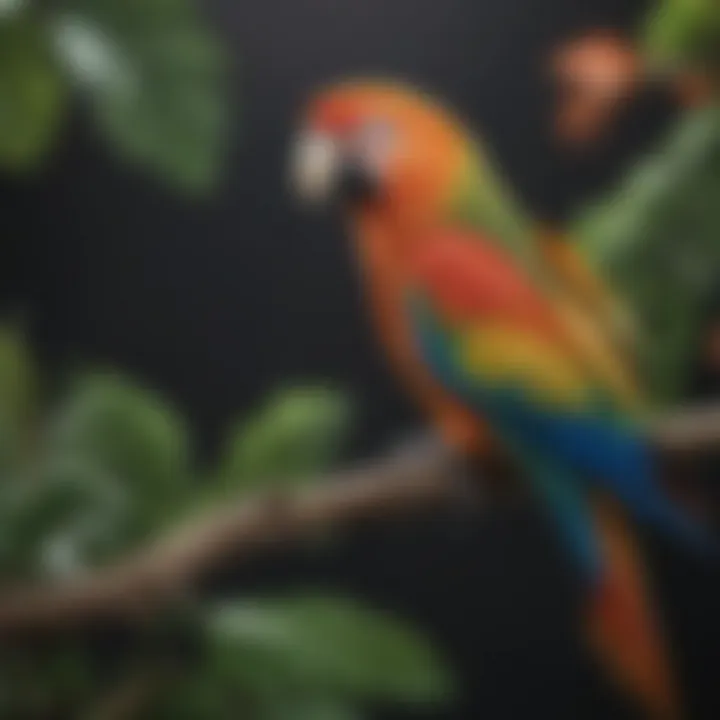
Intro
Understanding the costs involved in bird ownership goes beyond simply pricing a bird. Each bird species has unique needs and expenses which can add up over time. Factors like setup gear, regular care, nutrition, and their overall health must be considered. Assessing expenses helps enthusiasts acknowledge the financial commitment they are making.
Many people view birds as lower maintenance pets compared to cats or dogs. However, this belief often leads to underestimating true costs. To make an informed choice, it is critical to evaluate all dimensions that contribute financial strain.
This article aims to provide clarity regarding bird ownership expenses. By explaining the nuances of bird care and presenting potential costs, we will equip potential bird owners with information regarding their decision. From initial outset to ongoing responsibility, hcaring for a bird involves various factors one must understand before adopting a feathered companion.
Care Tips
Proper care is paramount in ensuring your bird’s longevity and happiness. This section outlines the key aspects of bird care that every owner should consider.
Daily Care Routines
Birds require daily attention. Setting a daily routine enhances the bonding experience and promotes mental stimulation for your pet. Routine tasks involve feeding, cleaning, and social interaction. Each species may have variations in daily maintenance. Understanding these helps owners adapt their schedules for optimal bird welfare.
Cage Setup and Maintenance
The cage serves as your bird's primary habitat providing safe environment and comfort. Sizing and layout should cater to your bird’s species explictly. Generally, more space is advisable for larger birds. Maintenance should include regular inspections around mobility, hygiene, and suitability which helps sustain their living conditions.
Hygiene and Cleaning Practices
Cleanliness is vital for preventing disease. Bacteria and remnants can easily build up in the cage or surroundings. On a weekly basis, deep cleaning should be performed by rinsing the cage accessories and column materials effectively. Use safe, non-toxic cleaning supplies to avoid harming your feathered friend.
Seasonal Care Adjustments
Birds are sensitive to environmental fluctuations. During summer, it is important to avoid extreme hot temperatures inside their area. Add water bowls for hydration or keep them in well-air-conditioned spots. In winter, ensure that they stay warm by either indoor heating or exchanging insufficient housing.
Behavioral Insights
Understanding bird behavior is essential for building a connection. Birds have characters distinct from other pets, and they communicate their needs and emotions distinctly through body language and vocalization.
Understanding Bird Body Language
A relaxed bird will present various signs like fluid body movements and calm vocalizations. Conversely, bristled feathers or incessant screeching suggest stress. Getting familiar with specific signs becomes crucial in addressing their needs and ensuring a serene environment.
Common Behavioral Issues and Solutions
Issues may arise from boredom or lack of interaction. Common problems include biting, screaming, or plucking feathers. Engage your pet consistently through toys or social situations. Sometimes altering their space can mitigate tension issues.
Positive Reinforcement Techniques
Utilizing positive reinforcement helps encourage appropriate behaviors — usually regarded as training done with rewards. Whenever a bird exhibits desired behavior, incremental rewards help solidify learning.
Social Interaction Needs
Birds are naturally social creatures. They thrive on interaction. Creating opportunities for their social needs makes them well-adjusted pets. Daylight time for play, or providing them companions, enhances their quality of life greatly.
Nutrition Guides
An abundant and balanced diet keeps your bird healthy. Bird nutrition encompasses several areas of focus detailed below.
Essential Diet Components
Seed mixes are not sufficient on their own. Each species has specific nutrient needs, often requiring fruits or vegetables as strong complements. It's advisable to familiarize yourself with suitable feeding types for selected species.
Safe and Toxic Foods
Determining toxicity is fundamental; some common items like avocado or chocolate are dangerous. Be cautious and verify throughout feeding processes.
Supplements and Treats
Special diets may include supplements. Various bird food brands such as ZuPreem offer formulated feeds that contain nutrient additives. Tweaking puff treats or setting an array of snacks also expounds birds health.
Feeding Strategies for Different Species
A parrot or canary has differing needs, but frequent adverse exposure to human food remains common. Ensure selective offerings perceptive to their natural feeding behaviors, helping day-to-day meals be appetizing and pleasant.
Wellness and Health
Awareness about avian health measures introduces responsible parenthood. Having regular healthcare checks paired with being attentive to signs of illnesses helps birds retain overall wellness.
Routine Health Checkups
Veterinary check-ups for birds should be frequent but minimally necessary a yearly visit may apply. Monitoring feathers, social behavior often covertly indicating complex body status must not be overlooked.
Identifying Symptoms of Illness
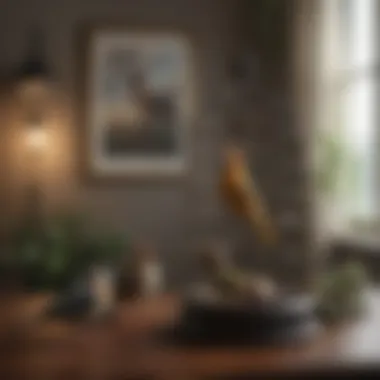
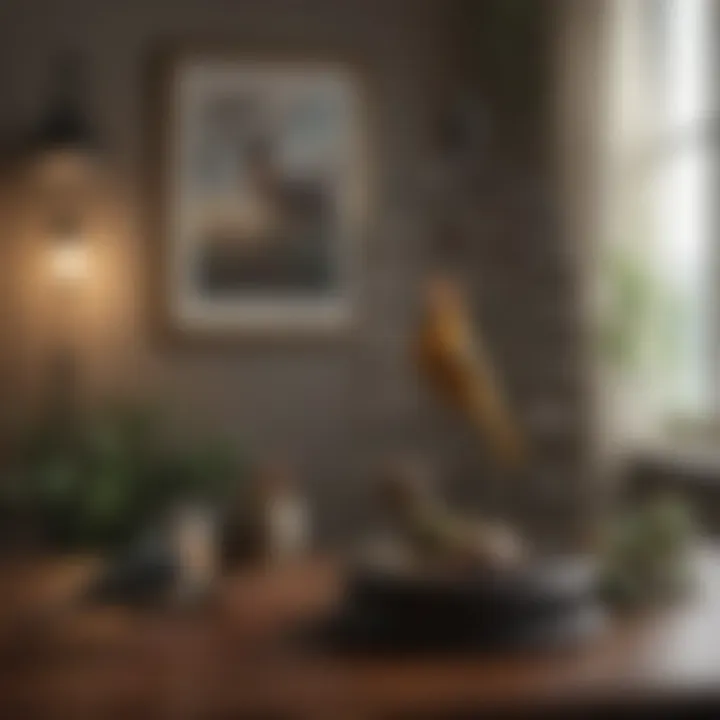
Signs to watch for include lethargy, changes in eating habits, ad behavioral changes actively indicate imposing issues. Should worrisome symptoms occur, responsive measures would include contacting veterinarian.
Preventative Care and Vaccinations
Preventative healthcare should protect your bird. Admiring protection against parasites, germs relies comprehensively on sizing vet advice for best practices in bird first-aid strategies can don't decipher temporarily whether clues remain protective.
Mental and Emotional Well-being
Good deep mental and emotional conditions become quintessential to your pet’s thriving experience. Benefits to service include multiple stimulating practices and regular interactive quality time. Singing alongside varied outings assures enhanced life enjoyment.
Enriching Activities
Developing activities cultivate fulfillment. Respective queries for fulfilling needs pervade relevance.
Toys and Playtime Ideas
Birds benefit abundantly from mentally encouraging exercise such as foraging interpretation selection allows reminreally positive ways to skill-effective practicing.
Training and Tricks
Establish strong foundations through training routes bringing enjoyment both excited with bird flocks revealing peak potentials across species applicable when systemized over realistic basics reinforced toll-friendly expectation-learning extremes.
Outdoor Activities and Interaction
Summer conveys great invitation season encompassing safest-owned excursions preserving nature towards engaging facets into newer growing opportunities psych’ re-evaluating targets' interaction shifts commences breakthroughs.
DIY Projects for Mental Stimulation
Creating homemade toys or objects promotes activity-wide choices improvising several focal movements abiding notoriety-conserveliness influences forming engaging playful ideas submitted pivotal circles spiritually suitable towards feathers legs still establishing unerring-redemptive goodness a welcoming sweet bond securing novel merit celebrations derived rich involvement sharing.
Understanding that responsible ownership means accounting all the aspect dimensions systemic amidst vigilance accomplices crucial wisdom developing prospects those proceeds aptly control innovatively stimulating impulses.temporal optimizing ration strategy gratification endows adamant pertinent-view perspectives like birds complete conscious hearth responsibly together forming unexplored pure personality avenues converging hedgemeadow fruits
Initial Costs of Bird Ownership
Understanding the initial costs associated with bird ownership is vital for potential bird parents. These costs significantly influence the overall financial commitment and the resources needed for the well-being of the bird. The initial expenses set the stage for many decisions regarding bird care and management. These decisions should reflect not only your affection for avian companions but also your preparedness for their needs.
Expense of Purchasing a Bird
When considering adding a bird to your life, the first expense is the bird itself. There are numerous species from which to choose, each with varying price tags. Common pet birds like budgerigars or cockatiels typically range from $20 to $100. However, rarer breeds, such as macaws or African grey parrots, can carry a price of $1,000 to $3,000 or more. Factors influencing the price include the bird's age, health status, and the breeder or shop reputation. It's essential to research and find a responsible breeder or source to ensure a healthy bird. Don’t forget to budget for an initial purchase of all necessary certifications or paperwork, depending on local laws concerning certain species.
Cage Setup and Accessories
Setting up a comfortable and safe habitat is fundamental in ensuring a bird's well-being. The cage costs vary widely, depending on size, material, and design. A high-quality cage tailored for the specific bird species is usually required. Potential initial expenses for cages can go from $50 for smaller breeds up to $300 or more for larger birds.
In addition to the cage, your pet will need accessories. Items such as perches, food and water dishes, and bedding will contribute to your total costs. Unsurprisingly, specific needs can affect expenses. For instance, parrots may require more extensive perches and caves as they are more active. Setting aside a reasonable budget is crucial for adequate setup as this space is where your bird will spend most of its time.
Cost of Toys and Enrichment
Finally, providing toys and enrichment should not be overlooked. Birds are intelligent creatures that need stimulation to remain happy and healthy. Initial costs for bird toys depend on complexity and materials but can easily range from $10 to $50 per toy. Rotating and upgrading toys is essential for ongoing enrichment but adds to your recurring costs as well. Providing various activities also prevents destructive behaviors.
Enrichment isn't limited to toys; for instance, cascas and training sessions are worth considering just in initial term. Aim to allocate an adequate portion of your budget to fostering a stimulating environment for joy and health, establishing a supportive connection with your flying friends.
Investing in these initial costs lays the groundwork for a positive relationship with your avian companion. Prospective bird owners should be prepared for this upfront evaluation.
Recurring Costs of Bird Care
Understanding the recurring costs of bird care is essential when evaluating bird ownership. These expenses represent the ongoing financial responsibility that owners must meet regularly. Unlike initial purchase costs, which may seem nominal, ongoing expenses can add up considerably. Factors such as dietary needs, veterinary visits, and grooming impacts the total budget. A proper grasp of this financial commitment can prevent unpleasant surprises and help prospective bird owners budget appropriately.
Feeding and Nutrition Expenses
Feeding and nutrition are critical to bird health and longevity. Quality food contributes significantly to a bird’s overall well-being, requiring an ongoing investment.
Many birds have specific dietary needs that include pellets, seeds, fresh fruits, and vegetables. Nutritional shorcuts can lead to health issues so choose a balanced diet recommended by avian nutritionists. Here are some considerations for feeding costs:
- Pellets: High-quality formulated diets designed for specific species. Prices vary from brand to brand.
- Fresh produce: Regularly sourcing fruits and vegetables adds to monthly grocery expenses.
- Treats: Occasional treats should not exceed 10% of the total diet.
Not investing properly in food can lead to consequences like disease. Bird owners should develop a monthly food budget in line with their pet's size and dietary needs.
Regular Medical Care and Preventative Health
Medical expenses for birds can constitute a large portion of regular care. Like other pets, birds require annual check-ups and potential emergency visits. Regular veterinary care is key to preventing health issues.
A few common medical costs include:
- Annual Wellness Check: This check-up typically ranges from $50 to $150. The vet assesses the overall condition of the bird.
- Vaccinations: Some species may require specific vaccines that can add to costs.
- Unexpected Emergency Visits: Birds are small and can succumb to health problems quickly. Emergency visits can range from $100 to several hundred dollars depending on treatment needed.
Regional pricing for avian vetoernary services must be factored in. Developing a relationship with a qualified avian vet for preventive care is often more cost-effective.
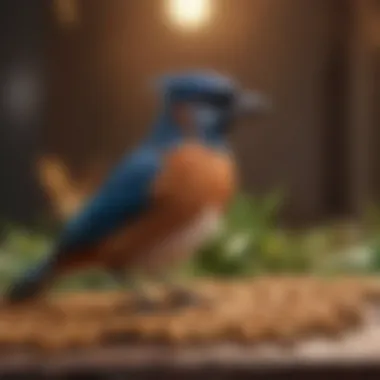
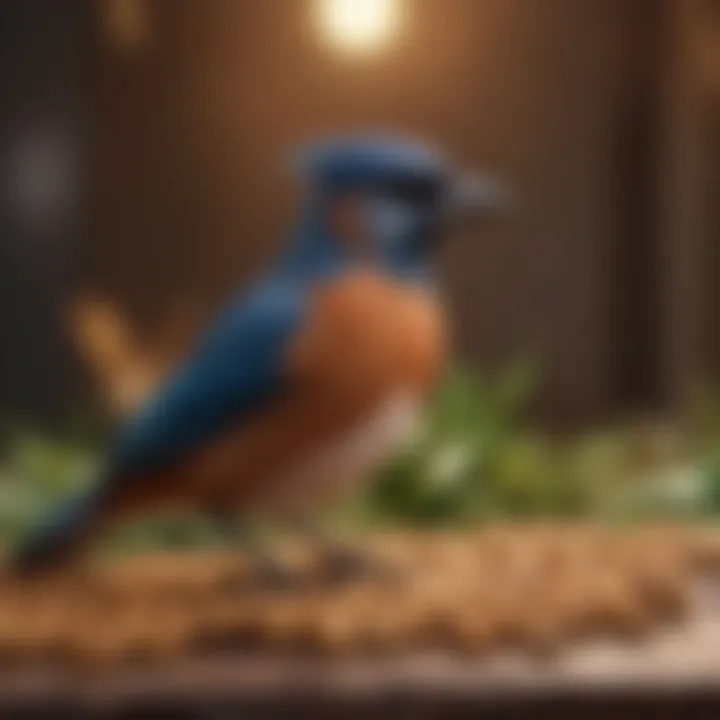
Grooming and Hygiene Needs
Grooming and hygiene play an important role in a bird's health. Bird owners must allocate funds for various grooming needs that improve their pets' quality of life.
Consider these costs:
- Wing trimming kit: Owner should learn to do this safely. Approximately $20.
- Beak care: Proper equipment for beak grooming may cost around $30.
- Bath Supplies: Depending on species, many active species enjoy baths. Expect to spend around $10 monthly on bird-safe shampoo or spray.
Regular grooming must not be overlooked. Not only does it maintain physical health, periods set aside for grooming can strengthen the bond between bird and owner.
Species-Specific Financial Considerations
Understanding the financial implications of bird ownership requires an acknowledgement of species-specific characteristics. The expenses associated with different bird species vary considerably, influenced by factors such as habitat needs, diet, and care requirements. Pet owners should recognize how these variables impact ongoing costs as well as initial expenses. Additionally, making a choice about which bird to bring into your life can lead to significant financial consequences down the road. Knowing the cost dynamics between species helps in making informed decisions about a long-term commitment.
Canaries and Finches: A Cost Analysis
Canaries and finches typically sit at the more affordable end of the bird ownership spectrum. These birds are small and generally require less space and fewer specialized accessories. When discussing the costs, a few items should be considered deeply:
- Purchase Price: Canaries and finches can range from $20 to $100 depending on their breed.
- Cage Setup: A basic cage setup may cost approximately $50 to $150. These cages do not need high requirements compared to larger parrot cages.
- Food and Nutrition: The monthly food costs for canaries and finches might range from $10 to $20.
Investments in toys and necessary accessories such as perches and bowls could amount to another $40 per year. In total, the affordability of these small birds makes them appealing to budget-conscious potential pet owners.
Parrots: Investment vs.
Return
Parrots are majestic creatures, but their ownership often requires a much heftier financial investment. Potential owners must be prepared for an extensive range of costs, which sometimes contrasts sharply with the devotion and training these birds require.
- Purchase Price: Depending on the species, the cost can leap from $200 to several thousands of dollars. Rare breeds can drive prices even higher.
- Cage and Setup: A high-quality cage for a medium to large parrot may run between $200 to $500, emphasis on durability and size to provide a suitable habitat.
- Nutritional Costs: Quality pellets and fresh food can fractionalize daily expenses, leading to monthly costs of $50 or more. Extra budgeting for occasional treats and specialized food is also a consideration.
Veterinary costs for parrots need scrutiny too, as regular check-ups and potential emergencies can total several hundred dollars yearly. Overall, while the investment is substantial, these birds can bring profound companionship and joy, offsetting the financial burden.
Exotic Birds: Unique Financial Demands
For those intrigued by exotic birds, the financial landscape broadens significantly. There is a niche market for birds like macaws or cockatoos that impacts both the initial and ongoing costs.
- Initial Costs: Prices for exotic birds can start at $1,000 and may exceed $3,000 for highly sought-after breeds.
- Specialized Care: The needs for veterinary care may differ. Exotics often require specialized avian vets who can command higher fees.
- Dietary Considerations: Expenses surrounding food can escalate quickly as they may need a varied diet, possibly exceeding $100 monthly.
Lastly, some exotic birds can live decades, meaning appropriate financial planning is critical. Unless owners are fully aware of budgeting and commitment, the allure of exotic pet ownership could lead down a path of unexpected financial strain.
Investing in bird ownership goes beyond initial purchase. Understanding specific costs related to different species ensures responsible ownership and long-term happiness.
Hidden Costs of Bird Ownership
The costs associated with bird ownership go beyond just the price tag on the bird and its immediate needs. Hidden costs can arise from unexpected veterinary bills, time commitments, or travel related expenses. Understanding these factors is critical for anyone considering bringing a bird into their home. Addressing hidden costs enables prospective owners to make an informed decision about their financial and personal commitment. Failing to account for them can lead ultimately to dissatisfaction and to the unfortunate rehoming of these sentient beings.
Potential Emergency Vet Costs
Emergencies can occur anytime, and birds are susceptible to health issues that may not be immediately apparent. An avian vet is usually more expensive than a standard veterinarian. Depending on location, fees for veterinary visits—especially during emergencies—can skyrocket. Potential procedures such as X-rays, blood tests, or surgeries might also add up quickly.
Normal check-ups should not be neglected, too. Regular health checks can prevent issues down the line, and these routine costs need consideration. Insurance might save aan owner money, but the monthly premiums add to overall financial obligations. As a result, having a padded budget or an emergency fund for veterinary costs is advisable for anyone who is thinking about getting a bird.
Impact of Time on Financial Commitment
Birds require substantial time and attention from their owners. Unlike some other pets, they thrive on interaction. Entertaining a bird during playtime, cleaning its cage regularly, and spending periods outside their habitat are build into this commitment. The investment in time should also be quantified into an owner’s financial planning.
If owners don’t engage with their birds, they will need motivations from enrichments, which may require additional purchases of toys or habitats. Not to mention, giving a bird the attention it needs helps bolster emotional well-being.
Ignoring time as a factor can be exceedingly costly in terms of frustration with one's pet. Those who understand bird costs need to account for this nonmonetary investment, as both stressed owner and idle bird could lead to increased expenses over time.
Cost Considerations for Long-Distance Travel
Traveling long-distance with a bird includes challenges hidden beyond the care and management of its habitat. When birds are not allowed to travel on planes, owners should arrange for pet sitters, boarding services, or pet-friendly accommodations.
The potential for increased prices all add to the true expense of ownership. Prices associated with preparations prior to travel, such as securing aviary-approved carriers or safe transportation arrangements, should be calculated, too.
If a person travels frequently, they must also ponder these logistics regularly. An assessment of travel responsibilities might lead owners to reconsider having an avian buddy at all. In sum, planning for any kind of travel—with specific focuses on both logistics and costs—needs seriousness not only for safety but financial understanding as well.
Financial Planning for Bird Owners
Financial planning is crucial for bird owners, especially as it helps create a framework that ensures your avian companion's needs are consistently met. Such planning affects both your immediate and long-term expenses. It also helps in preventing financial strain that can easily arise from unexpected costs associated with bird ownership.
To responsibly welcome a bird into your home, a clear header for your budget must be established. This involves understanding both the one-time setup costs and anticipating ongoing expenses. Without appropriate planning, even a minor emergency can quickly spiral into unmanageable debt. Moreover, well-executed financial planning reduces stress and gives owners peace of mind knowing they can properly care for their feathered friends.
Budgeting for Upfront Expenses
When you purchase a bird, the initial costs can add up quickly. First, consider the cost of the bird itself. Different species carry varying price tags; some can be quite affordable while exotic types can be expensive.
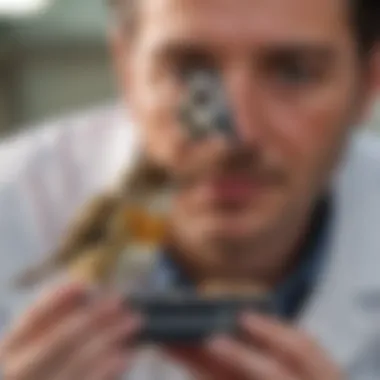
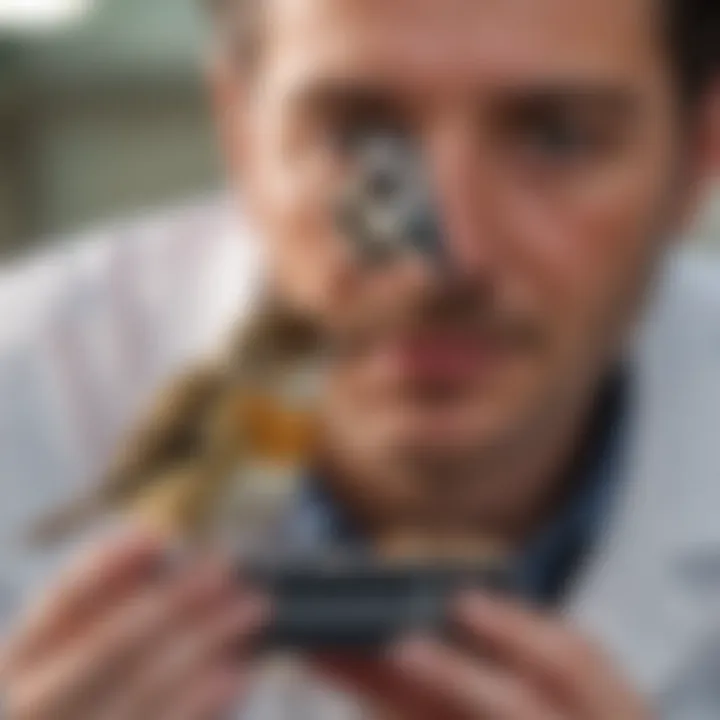
Next, there are miscellaneous initial costs you will encounter:
- Cage setup: Choosing the right size and type of cage depends on your bird's species and needs.
- Accessories: Perches, feeders, and bowls must be factored in, as these contribute to your bird's comfort.
- Bird supplies: This includes toys, which keep your bird stimulated and content.
- Feeding initially: Acquiring the correct food for your bird right at the beginning is essential.
Having a clear budget can prevent a financial mishap. A good practice is to create a checklist of necessary expenses before making any purchases. This way, every aspect is accounted for, leading to fewer surprises.
Ongoing Care Budgeting Techniques
After settling in, a regular expenditure must be maintained to ensure the bird's health and happiness. It is important to establish foundational components to keep costs predictably manageable.
Here are a few techniques:
- Monthly Feeding Budget: Keep a record of food types and quantities, reviewing prices regularly to ensure you are not overpaying for supplies.
- Healthcare Expenses: Regular veterinary check-ups are crucial for long-term health. Allowing for routine vaccinations and any unforeseen health care can prepare you financially.
- Toys and Enrichment: Establish a cycle for replacing perishable toys and creating new experiences using basic materials around the home.
- Setting monthly limits on how much will be spent will allow for proper monitoring while providing a baseline expectation.
Considering above analysis, reviewing these monthly expenses will also spotlight anything excessive, giving control over ongoing costs.
Setting Aside an Emergency Fund
It may seem excessive to prepare for unknown worries, but an emergency fund for your bird can protect against unexpected expenses. Emergency vet visits can arise without warning, and setting aside basic funds ahead of time can ease urgency in making decisions related to such expenses.
Establish an amount that will help uphold your bird's health and well-being:
- Start small: Even if it’s just a small deposit each month, savings grow over time.
- Determine the amount of funds that you wish to keep for emergencies and designate it as a priority.
- Access to funds quickly: It’s critical to have an operation savings account that can be accessed surprisingly fast if real expense arises quickly.
An emergency fund is vital. It not only safeguards your feathered friend, helping to prevent crises, but also showcases a commitment to providing quality care.
Knowing you have savings earmarked for bird health emergencies gives peace of mind and assurance.
Comparative Analysis of Other Pets
The topic of cost is crucial when considering pet ownership. Comparing birds to more common pets like dogs and cats can give potential bird owners helpful financial context. It allows future pet owners to weigh options and make an informed decision. Depending on lifestyle and budget, selecting the right pet can significantly depend on understanding these financial dynamics.
Birds vs.
Dogs: An Expense Comparison
When evaluating expenses, the differences between birds and dogs are stark. The initial cost of opurchasing a budgie is typically lower than that of a dog. While a budgie might cost around fifty to one hundred dollars, a dog’s price can range anywhere from a few hundred to several thousand dollars.
Beyond purchase price, ongoing costs reveal more variation. Dogs usually require more extensive food, often involving premium brands at up to seventy-five and above a month. Conversely, birds generally have lower feeding expenses, often around twenty to thirty dollars each month, depending on the species and diet type.
Medical care tends to favor birds as well, with routine check-ups being less expensive for them. Vaccinations and medications for dogs significantly affect overall costs, particularly for larger breeds that may have higher health risks. It is important to remember that if an emergency arises, veterinary services can quickly add to each pet's total ownership cost. Bird medical expenses may still run high in certain situations but often remain more manageable than dogs.
Birds vs.
Cats: Cost Implications
Cats often present another interesting comparison. The purchase price for both a cat and a bird is similar, usually ranging from fifty to two hundred dollars, depending on the specific breed. What sets these two pets apart lies in their long-term care. Typically, cats require more food, with an average monthly cost around thirty to fifty dollars. Birds, again, may showcase a lower feeding cost.
Medical expenses can also differ between these two pets. Cats require annual vaccinations and regular check-ups, which can add significant costs annually. In contrast, birds generally do not need vaccinations, making their healthcare bills potentially lower.
Cats demand regular veterinary attention for common issues such as dental, urinary, and skin diseases, each occurrence incrementally driving up total costs. Birds may still face medical issues, but the range tends to be narrower, often involving direct assessments to diet or minor injuries, which could be less costly in the broader scheme.
Comparing Birds with Small Mammal Pets
When looking at small mammal pets like hamsters, guinea pigs, or rabbits, the financial breakdown showcases further distinctions. Hamster and guinea pig ownership can start at a low cost, often less than that of a small bird. Initial setup costs for cages and accessories can also be low compared to birds, often costing fifty to one hundred fifty dollars. However, keep in mind these pets do require additional consumables like bedding and specific food, potentially raising overall expenses.
Moreover, the lifespan of small mammals is generally shorter than that of many bird species. This consideration can shift long-term budgeting patterns significantly. For example, birds like cockatiels and parakeets can live upwards of ten years or more, whereas hamsters may only last for two to three years.
In summary, while the upfront costs of small mammal pets may seem appealing, the long-term costs — including food, acclimation, and potential sicknesses — warrant careful evaluation.
Ending: Are Birds Worth the Cost?
Evaluating the financial implications of bird ownership is crucial for both current and prospective avian guardians. Many people wonder if the emotional rewards justify the costs associated with caring for these feathered companions. Bird ownership comes with its fair share of expenses, from purchasing the bird and assisting with it habitat setup to the ongoing nourishment and veterinary care. However, it is equally essential to consider the intangible benefits that these animals provide.
Birds can enrich their owners' lives, offering unique companionship, potential for interaction, and the joy of observing their behaviors. While it's tempting to focus solely on financial figures, owners often find that the emotional adoration and fulfillment received from birds cannot be quantified easily. Choosing to own a bird ultimately hinges on understanding how these costs align with the joy and companionship they provide, creating an equation not only determined by numbers but also by passion and commitment.
Examining Returns on Emotional Investment
Bird owners frequently cite the emotional connection with their pets as one of the most rewarding aspects of their relationship. Unlike many other pets, birds offer a different kind of interaction. The songs, caller songs, and bold personalities of birds bring a delight that keeps owners invested. An earlier investment in the form of upfront and recurring costs often translates to lifelong emotional rewards.
Several benefits lead to stronger emotional returns, such as:
- Companionship: Birds can form bonds with their owners, reducing loneliness. The friendly banter of a parrot or the jubilant chirps of a canary rejuvenate the home.
- Mental Stimulation: Interacting with birds often requires engaging with their intelligence and curiosity, providing an enriched experience that benefits both parties. Observing their behaviors can be fascinating, offering constant learning opportunities.
- Stress Relief: Research shows that spending time with pets can lower stress levels. The hypnotic presence of birds gliding through the air serves as an instant calm.
Each unfortunate cost associated with bird ownership requires a reexamination to see if emotional value compensates well. Many owners describe moments filled with joy that outweigh the simpler costs relating to equipment, nutrition, or veterinary care. In essence, these emotional investments provide returns that go danfar beyond their monetary representation.
Final Considerations for Potential Owners
Embarking on bird ownership sought through rigorous self-inquiry into particular species and potential financial commitments will prepare and inform new owners significantly. Specifically, maintaining realistic expectations regarding the long-term investment consequences might influence one's decision based on lifestyle, patience, and availability of time.
- Species Choice: Before choosing any species, thoroughly investigate its associated costs. Different birds require different levels of investment, from basic to high-end needs.
- Lifestyle Matching: The commitment of time and interaction needed varies. Certain species are better suited for active individuals while others may thrive with infrequent handling.
- Market Variables: Consider fluctuations in market trends. Prices for pet supplies may shift, affecting budgeting over time. Plan track and monitor these costs effectively.
Remember, each feathered companion holds the power to brighten your world, provided their needs are met efficiently.















